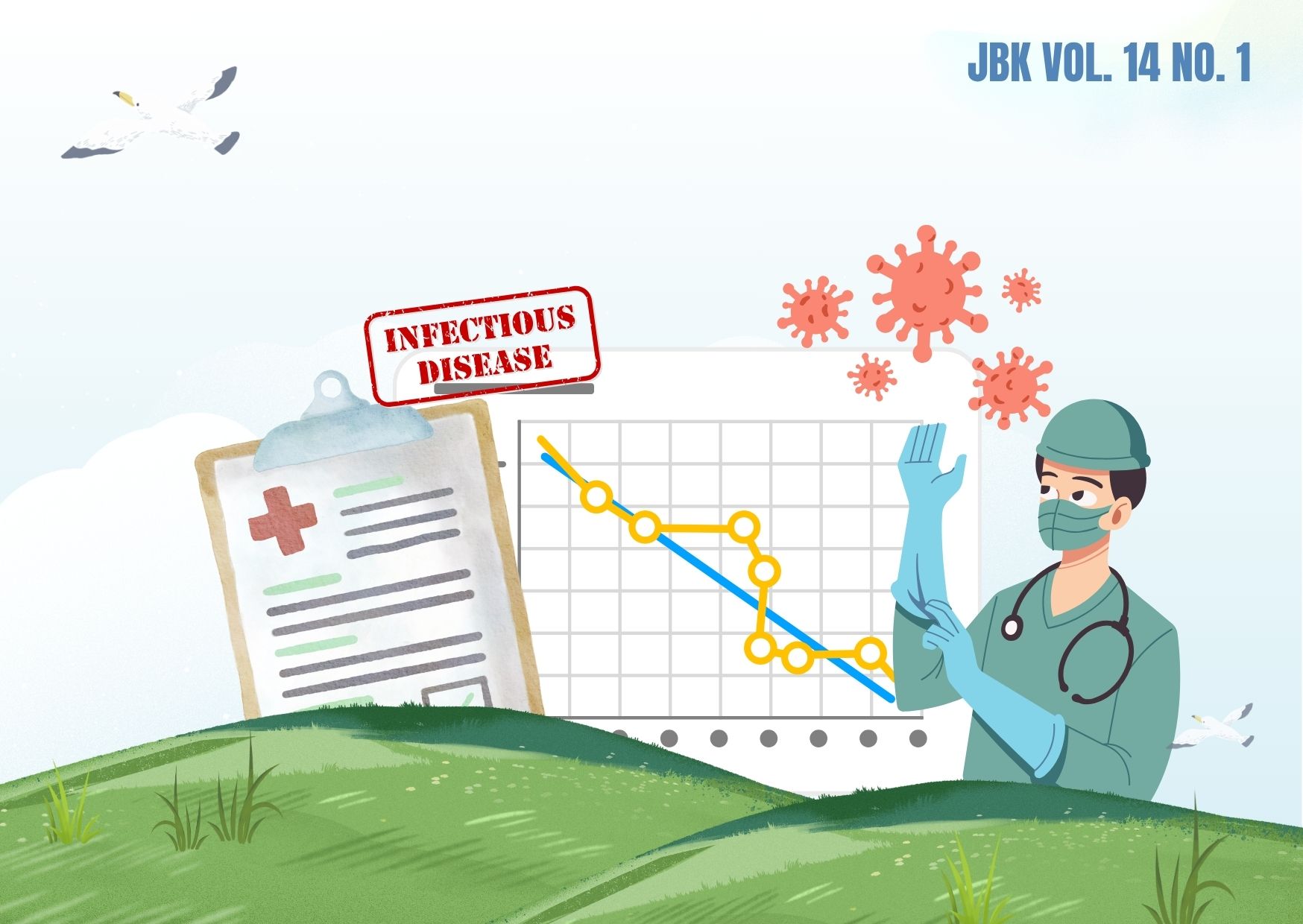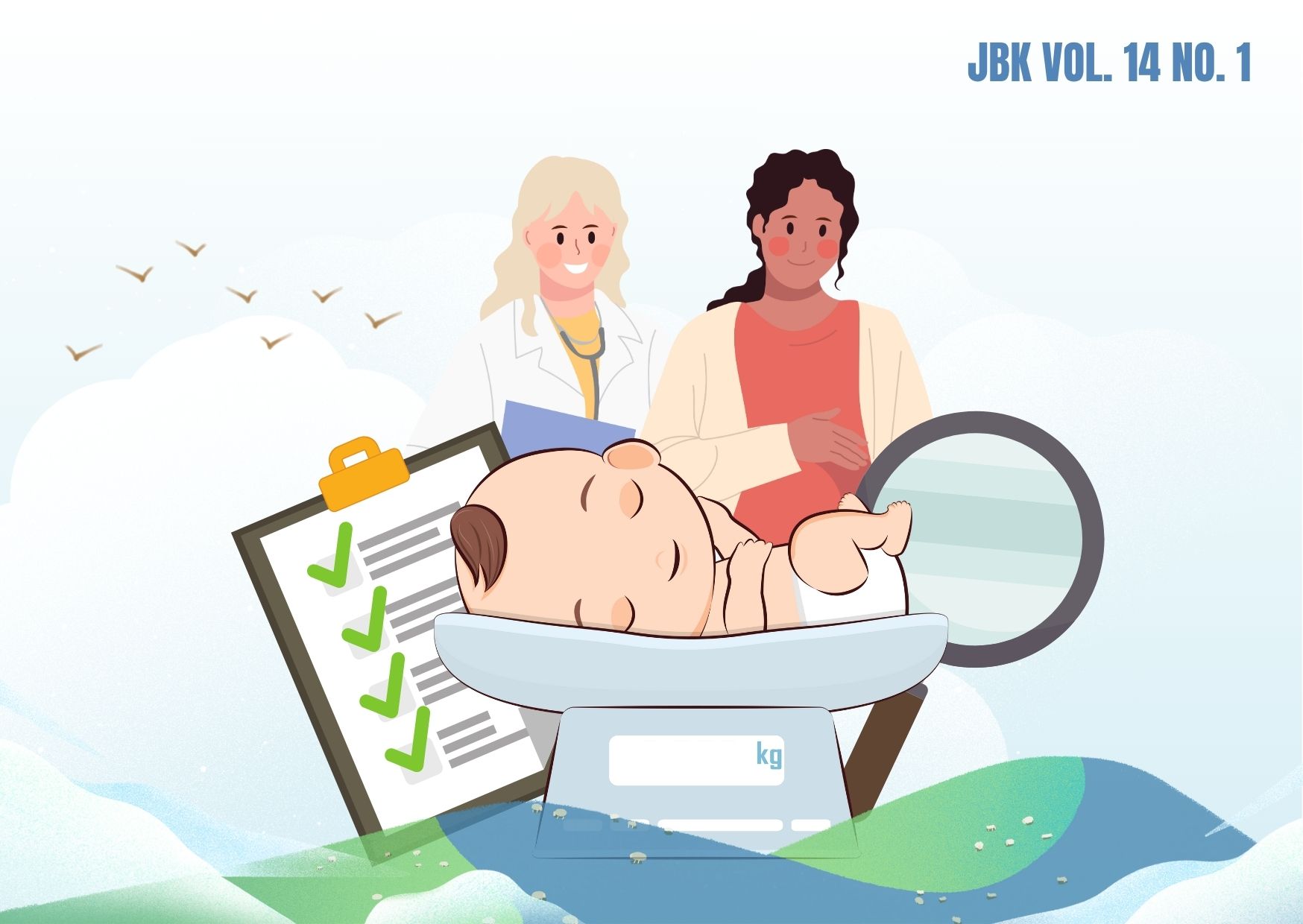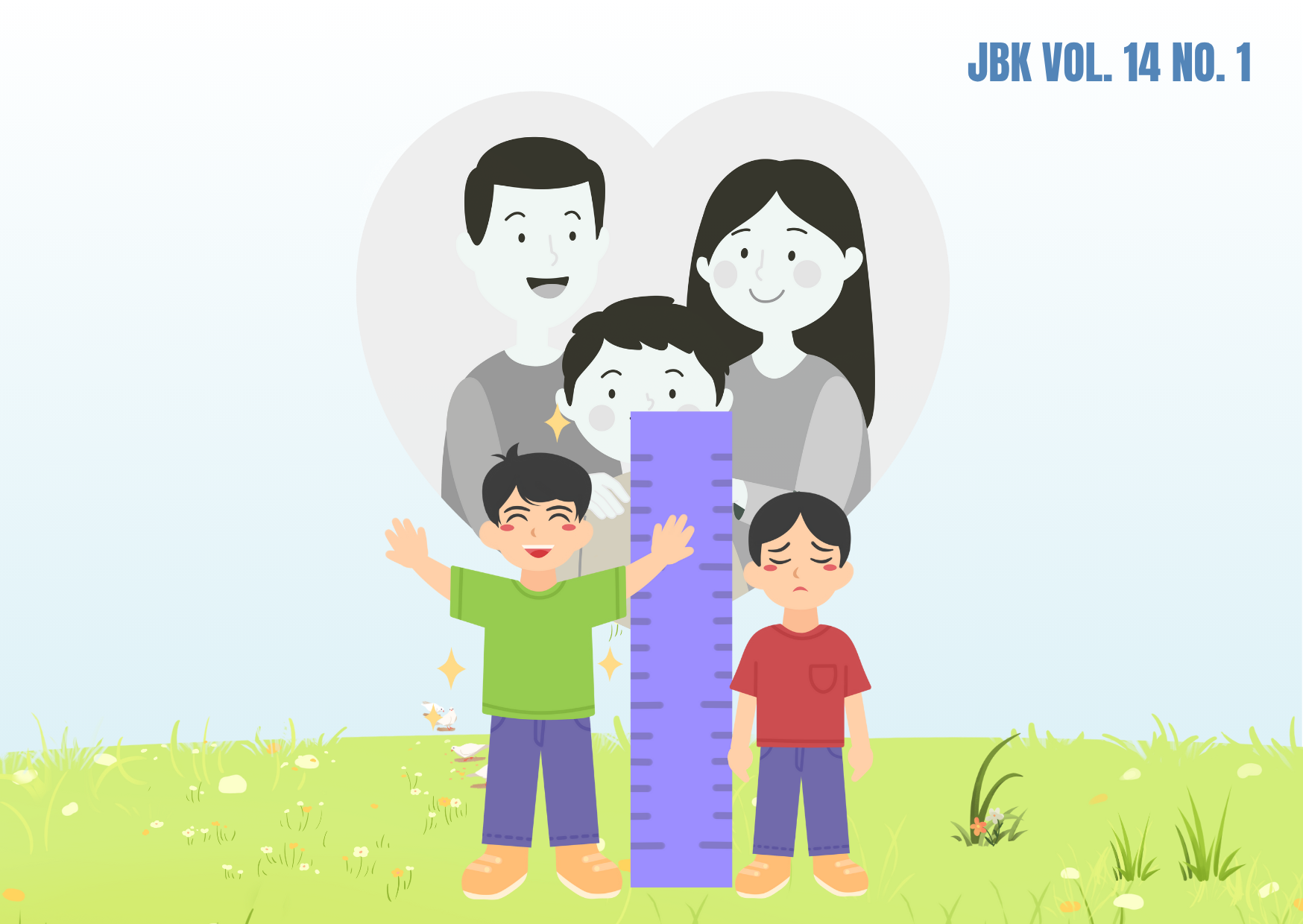THE EFFECT OF PERSONAL TAX EXEMPTION ON FERTILITY IN INDONESIA
Personal tax exemption (Penghasilan Tidak Kena Pajak - PTKP) can influence fertility choices by changing the costs or benefits of childbearing and increasing family disposable income. This study aims to investigate the impact of personal tax exemption on the addition of children in Indonesia. This study employs secondary data from Indonesian Family Life Survey (IFLS) data waves 4 and 5. The estimation, using a linear probability model, is an improvement from earlier studies as it employs a non-linear specification to more effectively capture the pattern of children's desired demand. This study found an inverse U-shaped relationship between the addition of children and personal tax exemption. The inverse U-shaped relationship indicates that the marginal effect of personal tax exemption decreases as the value of personal tax exemption increases. In addition, the probability of adding children is also influenced by the mother’s characteristics (age and working status), other adult female family members in the household, and the number of children. This study reveals that the taxation variable, personal tax exemption, can affect fertility. Thus, birth control should be carried out by considering various aspects other than direct birth control (e.g., family planning), including taxation.
Badan Pusat Statistik. Statistik Indonesia 2022 [Internet]. 2022. 790 p. Available from: https://www.bps.go.id/publication/2022/02/25/0a2afea4fab72a5d052cb315/statistik-indonesia-2022.html
National Family Planning Coordinating Board. Rencana Strategis BKKBN 2020-2024. 2020; Available from: https://www.bkkbn.go.id/pages-rencana-strategi-renstra
Titisari AS, Warren C, Reid A, Swandewi LKR. “Do I Have To Choose?” Two Children Vs Four Children in Bali’S Family Planning Program. J Biometrika dan Kependud [Internet]. 2022;11(1):98–109. Available from: https://doi.org/10.20473/jbk.v11i1.2022.98-109
Kamaruddin R, Khalili JM. The Determinants of Household Fertility Decision in Malaysia; An Econometric Analysis. Procedia Econ Financ [Internet]. 2015;23(October 2014):1308–13. Available from: http://dx.doi.org/10.1016/S2212-5671(15)00472-4
Hashmi AR, Mok WJ. Determinants of low fertility in Singapore: Evidence from a household survey. Singapore Econ Rev [Internet]. 2013;58(4):1–26. Available from: https://doi.org/10.1142/S0217590813500239
Andreev K, Kantorova V, Bongaarts J. Demographic component of future population growth [Internet]. Techinical Paper No 2013/3. 2013. Available from: http://eprints.lancs.ac.uk/29226/
Doepke M. Gary Becker on the Quantity and Quality of Children. J Demogr Econ [Internet]. 2015;81(1):59–66. Available from: https://doi.org/10.1017/dem.2014.8
Hayford SR, Guzzo KB, Kusunoki Y, Barber JS. Perceived Costs and Benefits of Early Childbearing: New Dimensions and Predictive Power. Perspect Sex Reprod Heal [Internet]. 2016;48(2):83–91. Available from: https://doi.org/10.1363/48e9116
Neumeier C, Sørensen T, Webber D. The Implicit Costs of Motherhood over the Lifecycle: Cross-Cohort Evidence from Administrative Longitudinal Data. South Econ J [Internet]. 2018;84(3):716–33. Available from: https://doi.org/10.1002/soej.12239
Werding M. Children are costly, but raising them may pay: The economic approach to fertility. Demogr Res [Internet]. 2014;30(1):253–76. Available from: https://doi.org/10.4054/DemRes.2014.30.8
Mumford KJ, Thomas P. Fertility Response to the Tax Treatment of Children. In: Annual Conference on Taxation and Minutes of the Annual Meeting of the National Tax Association [Internet]. 2017. p. 1–18. Available from: https://www.jstor.org/stable/26794417
United Nations Department of Economic and Social Affair PD. World Population Policies 2021 [Internet]. International Affairs. 2021. Available from: https://www.un.org/development/desa/pd/content/world-population-policies-2021-
Spéder Z, Murinkó L, Oláh LS. Cash support vs. tax incentives: The differential impact of policy interventions on third births in contemporary Hungary. Popul Stud (NY) [Internet]. 2020;74(1):39–54. Available from: https://doi.org/10.1080/00324728.2019.1694165
Goldin Katherine Michelmore J, Burman L, Duke B, Jones M, Maag E, McCubbin J, et al. Who Benefits From the Child Tax Credit? Natl Tax J [Internet]. 2022;75(1):123–47. Available from: https://doi.org/10.1086/717919
Kudła J, Walczyk K. Can fiscal policy spur fertility? Equilibrium Q J Econ Econ Policy [Internet]. 2018;13(2):167–79. Available from: https://doi.org/10.24136/eq.2018.009
Morris MC, Barari M. Personal Tax Exemption and Fertility in the United States: An Empirical Study by Age Groups. J Econ Insight [Internet]. 2020;46(1):51–74. Available from: https://econpapers.repec.org/article/mvejournl/v_3a46_3ay_3a2020_3ai_3a1_3ap_3a51-74.htm
Novitasari D. Pengaruh Penghasilan Tidak Kena Pajak terhadap Tingkat Fertilitas Rumah Tangga di Indonesia [Internet]. 2019. Available from: http://etd.repository.ugm.ac.id/penelitian/detail/170421
Georgellis Y, Wall H. The fertility effect of dependent tax exemptions: Estimates for the United States. Appl Econ [Internet]. 1992;24(10):1139–45. Available from: https://doi.org/10.1080/00036849200000007
Kaltsas A, Moustakli E, Zikopoulos A, Georgiou I, Dimitriadis F, Symeonidis EN, et al. Impact of Advanced Paternal Age on Fertility and Risks of Genetic Disorders in Offspring. Genes (Basel) [Internet]. 2023;14(2). Available from: https://doi.org/10.3390/genes14020486
Gourinat A, Mazeaud C, Hubert J, Eschwege P, Koscinski I. Impact of paternal age on assisted reproductive technology outcomes and offspring health: a systematic review. Andrology [Internet]. 2023;11(6):973–86. Available from: https://doi.org/10.1111/andr.13385
Aksoy CG. The effects of unemployment on fertility: Evidence from England. BE J Econ Anal Policy [Internet]. 2016;16(2):1123–46. Available from: https://doi.org/10.1515/bejeap-2014-0127
Kreyenfeld M, Andersson G. Socioeconomic differences in the unemployment and fertility nexus: Evidence from Denmark and Germany. Adv Life Course Res [Internet]. 2014;21:59–73. Available from: http://dx.doi.org/10.1016/j.alcr.2014.01.007
Raymo JM, Shibata A. Unemployment, Nonstandard Employment, and Fertility: Insights From Japan’s “Lost 20 Years.” Demography [Internet]. 2017;54:2301–29. Available from: https://doi.org/10.1007/s13524-017-0614-y
Godefroy R, Lewis J. Does male education affect fertility? Evidence from Mali. Econ Lett [Internet]. 2018;172:118–22. Available from: https://doi.org/10.1016/j.econlet.2018.08.028
Karabchuk T, Dulmer H, Gatskova K. Fertility attitudes of highly educated youth : A factorial survey. J ofMarriage Fam [Internet]. 2021;(November 2020):1–21. Available from: https://doi.org/10.1111/jomf.12790
Chapman SN, Lahdenperä M, Pettay JE, Lynch RF, Lummaa V. Offspring fertility and grandchild survival enhanced by maternal grandmothers in a pre-industrial human society. Sci Rep [Internet]. 2021;11(1):1–10. Available from: https://doi.org/10.1038/s41598-021-83353-3
Yu X, Liang J. Social norms and fertility intentions: Evidence from China. Front Psychol [Internet]. 2022;13(November). Available from: https://doi.org/10.3389/fpsyg.2022.947134
Laksono AD, Wulandari RD. “Anak adalah Aset”: Meta Sintesis Nilai Anak pada Suku Lani dan Suku Aceh. J Kesehat Reproduksi [Internet]. 2019;10(1):11–20. Available from: https://doi.org/10.22435/kespro.v10i1.933
Anjani R, Hairunnisa, Khoirunisa AR. Kampung KB Sebagai Upaya Merubah Paradigma Banyak Anak Banyak Rejeki". In: Proceedings Universitas Pamulang [Internet]. 2020. p. 141–6. Available from: https://jurnal.umj.ac.id/index.php/SAMASTA/article/view/7226/4454
Caplescu R. Using the Theory of Planned Behaviour to Study Fertility Intentions in Romania. In: Procedia Economics and Finance [Internet]. Elsevier B.V.; 2014. p. 125–33. Available from: http://dx.doi.org/10.1016/S2212-5671(14)00285-8
Strauss J, Witoelar F, Sikoki B, Wattie AM. The Fourth Wave of the Indonesia Family Life Survey: Overview and Field Report [Internet]. WR-675/1-NIA/NICHD. 2009. Available from: https://www.rand.org/well-being/social-and-behavioral-policy/data/FLS/IFLS.html
Strauss J, Witoelar F, Sikoki B. The Fifth Wave of the Indonesia Family Life Survey: Overview and Field Report: Volume 1 [Internet]. Vol. 1, WR-1143/1-NIA/NICHD. 2016. Available from: https://www.rand.org/well-being/social-and-behavioral-policy/data/FLS/IFLS.html
Whittington LA. Taxes and the Family: The impact of the tax exemption for dependents on marital fertility. Demography. 1992;29(2):215–26.
Finance IM of. Peraturan Menteri Keuangan Nomor 137/PMK.03/2005 tentang Penyesuaian Besarnya Penghasilan Kena Pajak [Internet]. Available from: https://jdih.kemenkeu.go.id/in/dokumen/peraturan/54edfb51-d334-4232-8ef0-2f522d089855
Indonesia R of. Undang-Undang Nomor 17 Tahun 2000 tentang Perubahan Ketiga atas Undang-Undang Nomor 7 Tahun 1983 tentang Pajak Penghasilan [Internet]. Available from: https://peraturan.bpk.go.id/Home/Details/44968/uu-no-17-tahun-2000
Indonesia R of. Undang-Undang Nomor 36 Tahun 2008 tentang Perubahan Keempat atas Undang-Undang Nomor 7 Tahun 1983 tentang Pajak Penghasilan [Internet]. Available from: https://peraturan.bpk.go.id/Home/Details/39704/uu-no-36-tahun-2008
Angrist JD, Piscke J-S. Mostly Harmless Econometrics : An Empiricist ’ s Companion Mostly Harmless Econometrics : An Empiricist ’ s Companion. Chicago: Princeton University Press; 2008.
Cohen A, Dehejia R, Romanov D. Financial Incentives and Fertility. Rev Econ Stat [Internet]. 2013;95(1):1–20. Available from: http://www.jstor.org/stable/23355646
Chatla S, Shmueli G. Linear Probability Models (LPM) and Big Data: The Good, the Bad, and the Ugly. Indian Sch Bus Res Pap Ser [Internet]. 2013;1–45. Available from: http://dx.doi.org/10.2139/ssrn.2353841
Wooldridge JM. Introductory Econometrics. 5 th editi. Mason: Cengage Learning; 2012.
Whittington LA, Alm J, Peters HE. Fertility and the personal exemption: implicit pronatalist policy in the United States. Am Econ Rev [Internet]. 1990;80(3):545–56. Available from: http://www.jstor.org/stable/2006683
Pindyck RS, Rubinfeld DL. Microeconomics. 8 th editi. Upper Saddle River, New Jersey: Pearson; 2013.
Zakaria M, Fida BA, Janjua SY, Shahzad SJH. Fertility and Financial Development in South Asia. Soc Indic Res [Internet]. 2017;133(2):645–68. Available from: https://doi.org/10.1007/s11205-016-1382-6
Muadz A, Zulqarnain B, Yusuf M. The Relationship Between Socioeconomic Factors With Fertility Rate In Malaysia. Malaysian J Comput [Internet]. 2022;7(2):1222–35. Available from: https://doi.org/10.24191/mjoc.v7i2.18841
Chongvilaivan A, Chooi A. A comprehensive assessment of tax capacity in southeast asia [Internet]. Asian Development Bank; 2021. Available from: http://dx.doi.org/10.22617/TCS210243
Indonesia R of. PP No. 46 Tahun 2013 tentang Pajak Penghasilan Atas Penghasilan Dari Usaha Yang Diterima Atau Diperoleh Wajib Pajak Yang Memiliki Peredaran Bruto Tertentu [Internet]. 2013. Available from: https://peraturan.bpk.go.id/Home/Details/5378/pp-no-46-tahun-2013
Rothenberg AD, Gaduh A, Burger NE, Chazali C, Tjandraningsih I, Radikun R, et al. Rethinking Indonesia’s Informal Sector. World Dev [Internet]. 2016;80:96–113. Available from: http://dx.doi.org/10.1016/j.worlddev.2015.11.005
Copyright (c) 2024 Jurnal Biometrika dan Kependudukan (Journal of Biometrics and Population)

This work is licensed under a Creative Commons Attribution-NonCommercial-ShareAlike 4.0 International License.
Copyright ©2022 Jurnal Biometrika dan Kependudukan (Journal of Biometrics and Population)
This work is licensed under a Creative Commons Attribution-NonCommercial-ShareAlike 4.0 International License.
1. Copyright of all journal manuscripts is held by the Jurnal Biometrika dan Kependudukan.
2. Formal legal provisions to access digital articles of the electronic journals are subject to the provision of the Creative Commons Attribution-ShareAlike license (CC BY-NC-SA), which means that Jurnal Kesehatan Biometrika dan Kependudukan to keep, transfer media/format, manage in the form of databases, maintain, and publish articles.
3. Published manuscripts both printed and electronic are open access for educational, research, and library purposes. Additionally, the editorial board is not responsible for any violations of copyright law.



































